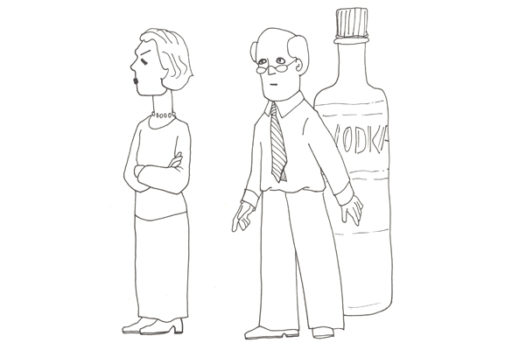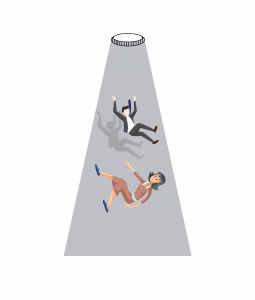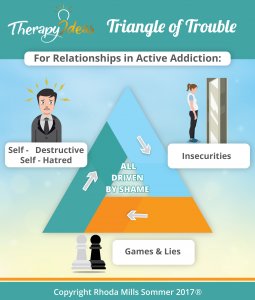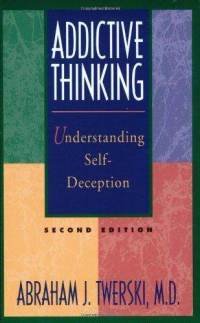- [email protected]
-
205 S Main St, Sharpsburg, PA 15215, USA
205 S Main St, Sharpsburg, PA 15215, USA

Addictions are attractive because they help us pretend we can cope with life. We live in a difficult world and there are many ways to numb the pain in an attempt to soothe the soul. Gambling, alcohol, drugs, eating, shopping, cyber sex, or compulsively watching television are just a few of the addictive choices available.
Eighty percent of the time the addiction is really a layer covering over a significant mental struggle of either depression or anxiety. Addiction becomes a poor way to self medicate.
There are two parts at the core of addictions that make treatment difficult. The first is fighting the willingness to constantly take the easy way out. The second is combating the power of shame & self-destructiveness.
AA is a crucial piece to addiction recovery because it is a place to share the shame & struggle which increases the potential for healing. AA becomes a safe place to practice honesty with the group, your sponsor and yourself through working the steps. Then you can carry that greater level of authenticity out into the world, understanding that avoidance & deflection only interrupt growth and problem solving.
Most people who are addicts do not think of themselves as having problems, unless they have the courage to become a member of AA or NA. If you secretly wonder if you have a problem with an addiction, test yourself by giving it up for a year. If your substance was wiped off the face of the planet, you should be able to cope. If you wince when you imagine giving up your addiction and start playing “yes, but,” you have a problem. (The “but” erases the yes). The addiction problem is far larger than you know.
If religion is a problem for you and why you don’t want to attend AA or NA, consider changing the words for Higher Power to Higher Purpose or Good Direction.
You’ve been lying to yourself, probably for a very long time, in order to cover that gnawing hole of emptiness inside. One of the lies that people tell themselves is, “I don’t have an alcohol problem, I only drink on weekends.” So take the test below to find out.
The RAPS4 has proven through research to ask the best questions on addiction. Each of these questions pertain to your behaviors in the past year.
1. Have you had a feeling of guilt or remorse after drinking?
2. Has a friend or a family member ever told you about things you said or did while you were drinking that you could not remember?
3. Have you failed to do what was normally expected of you because of drinking?
4. Do you sometimes take a drink when you first get up in the morning?
5. Are you drinking 5 or more drinks on an occasion and drinking as often as once a month?
A “yes” answer to at least ONE of the five questions suggests that your drinking is harmful to your health and well-being and may adversely affect your work and those around you.
The work of putting your identity together and deciding how to spend the gift of time on this planet can be overwhelming. Facing the work of building the infrastructure of your soul instead of using can be very overwhelming, which is why getting help makes sense.
If the addictions to drugs or alcohol has been going on for years of wasted time, outpatient rehabilitation is a real key to success. Rehab offers a greater intensity to addiction treatment. If you are lucky enough to grab onto it, it can change your whole frame of reference surrounding the excitement of recovery. Remember that fear and excitement are two emotions that always travel together. Fear drives addictions of all types and excitement can drive the choice of turning your life around.
You may ask yourself, “Can I really change?” My answer is that anybody who wants to badly enough can, no question about it. The problem for parents and partners of addicts is that getting to a place of really wanting to change can be a journey of years or an entire wasted lifetime. The average number of rehabs for an addict is four, which is evidence that recovery is not an easy path. Often addicts will give up the drug or alcohol addictions and fill the emptiness with sexual addiction instead of doing the inner identity work that is required.
There is very exciting research going on about the brain & addictions. There is no doubt that addictions are a medical condition. There is no doubt that 90 meetings in 90 days does prevent relapse because it takes at least this long for the brain to reset itself. There is no doubt that stress can increase the desire for drugs or alcohol.
There is a dance of Drama that both parties in a relationship often play that is summed up in the drama triangle under the Relationship Triangles page of this website.

(Relationships NOT in Recovery Info further down)
As a psychotherapist who values couples work, I have noticed there are not enough support systems for couples after one partner begins the recovery process from addictions. It is no wonder that the divorce rate is so high after sobriety.
The spouse of an addict needs to recognize their issues with co-dependence and confluence. The addicted spouse needs to deal with recovery, finding a sponsor, and working the 12 steps. Where is the “us,” I ask?
This avoiding and deflection is a double dose: both the non-using partner and the addict contribute to problems in the marriage. Yet, no one is serious about repair and problem solving. Many times the secret of the deep dissatisfaction within the marriage itself was a contributing factor in the cycle of addictions.
Barry McCarthy notes that sex can become too self-conscious when sober, and this can be a factor in relapse. Both people have to relearn sex with each other. Sex is just one issue that has been avoided. Power struggles, money, children, lack of intimacy, lack of respect etc. are huge hurdles. Everything must be looked at without the veil of alcohol and co-dependence.
Roles in marriage must be redefined with the newfound alertness that recovery offers. The non-drinking partner must face what was missing in the marriage and not pretend the only issue was the drinking.
The history of deception and betrayal rob the couple of the possibility for trust. Partners are easily slammed into either/or thinking and the ease of blame. Support for honesty and more authentic wrestling with problems is crucial in order to sustain the marriage in recovering from addictions.
Couples work involves learning how to talk and talk and talk. The therapist is like Dorothy in the Wizard of Oz squeezing oil onto the Tin Man so he can talk after being rusted shut. Relationships in recovery from addictions need a lot of words to create greater understanding.
One classic sticking point for a couple is the drinking partner gets exhausted by feeling everything is all their fault and the non-drinking partner feels “You had a whole life I never knew existed and stupid questions pop up for me every day!” Trust has been deeply torn for both and talking is the only way to begin to see each other and restore the fragile beginning of renewal out of the trap of addictions.
Talking instead of blame and accusations is the last thing either partner feels safe to do.
One obstacle to repair is the giant pile of resentments layered over time by the non-drinking partner. Sprinkle in a touch of self righteousness because they do not have a drinking problem & resentments can be very difficult to overcome. A therapy session or two, individually to sort through anger/resentments can be helpful then proceed with couples’s work to deal with all the unfinished business ready to contaminate progress.
Another example of the deeper work of repair in a recovering marriage is the fifth step of making amends. It is not enough for the recovering spouse to admit that they are sorry, that is only half an accomplishment. The recovering spouse must find the courage to hear the specifics of what the pain was for the non-using partner.
In our home, it was never enough to say “I’m sorry”, it is important to know what exactly you are sorry for. The non-using spouse needs to have the honor of their exact pain being witnessed. This is a very complicated and crucial part of real repair for couples in recovery from addictions.
The addict must not fall in the trap of taking the easy way out and ignoring the specifics of truth. The co-dependent spouse has to pursue the same path of truth even though it is painful. Honest despair offers greater hope than all the false illusions of the past soaked in addictions.
It is extremely sad when a great person does not engage in the struggle of addictions. Every partner has to answer for themselves the question of whether or not it’s worth it. It’s a different answer for everybody. Letting go of a relationship in active addiction is a process of letting go of hope. As Carl Whitaker once said “Hope is often disappointment deferred.” You do not want the addict to tug you down into the well of misery, which is why Al-Anon says “Detach with Love”.

Relationships with a partner in active addictions get into trouble because of the Drama Triangle which is fully described on the Manipulation page. There is another Triangle of Trouble that is also in play:

Addictions create a level of self-hatred, deep insecurities, the games & the lies can be exhausting & takes a toll over time.
It’s all driven by shame which is very hard for a partner to contribute to when they are frustrated & sick of the merry go round.
Codependent partners need to shift their focus away from rescuing & trying to fix the addict. They need to pursue meaning in their own lives in new ways. It’s crucial not to lose track of who you are as an individual.
Understanding triggers are important to increase self awareness. The alcoholic needs to make a list of what situations lead to use & the non-alcoholic partner needs to learn the triggers for their resentments.
I Can Be Me- A Helping Book for Children of Alcoholic Parents (ages 4-12)
My Dad Loves Me, My Dad has a Disease by Claudia Black (ages 5-12)
An Elephant in the Living Room (9 & up)
For Teenagers Living with a Parent who Abuses Alcohol/Drugs
The Staying Sober Workbook: A Serious Solution for the Problem of Relapse by Terence T. Gorski

Addictive Thinking, Second Edition: Understanding Self-Deception by Abraham J. Twerski, several people have decided to go into recovery after reading this powerful book.
A Drinking Life: A Memoir by Pete Hammill, a truthful personal history.
Beyond Denial — Why Addicts Relapse by Patrick Caffrey
Drinking: A Love Story by Caroline Knapp is a wonderful book, the title says it all.
First Year Sobriety: When All That Changes Is Everything by Guy Kettlehack, a survival guide.
Marriage On The Rocks: Learning to Live with Yourself and an Alcoholic by Janet Woititz.
Sober for Good: New Solutions for Drinking Problems — Advice from Those Who Have Succeeded by Anne Fletcher, based on interviews with 222 people.
Adult children of alcoholics by Janet Woititz
Recovery: A Guide for Adult Children of Alcoholics by Herbert L. Gravitz
Perfect Daughters: Adult Daughters of Alcoholics by Robert Ackerman
SherryBaby (2007) Maggie Gyllenhaal offers a heart wrenching performance as an addict recently out of prison struggling with recovery and relapse. She finally transforms her selfish love for her 5-year old daughter. She begins the movie without any self-respect and falls into the relapse pattern of taking the easy way out. By the end of the movie she grapples with being honest, making a hard choices and self-respect begins.

Smoke Signals (1998) Based on Sherman Alexie’s novel “The Lone Ranger and Tonto Fist Fight in Heaven,” it offers life on a contemporary Indian Reservation. It is a movie about the journey of forgiveness with an alcoholic father. Very emotionally honest as can be expected with a Sundance nutured film.

Kids (1997) Terrifyingly realistic of the ugliness of teens and addiction.
Requiem for a Dream (2000) Gut wrenching movies that are not for the squeamish. Watching the waste and lack of morality should cure the potential addict (if only it could be that easy). Unfortunately, addicts will watch and reassure themselves that they’re not as bad as that, so…

Leaving Las Vegas (1995) Nicholas Cage offers a harrowing performance of the self-destructiveness of addiction.

When a Man Loves a Woman (1994) Meg Ryan plays the addict. Her husband is the confused codependent.